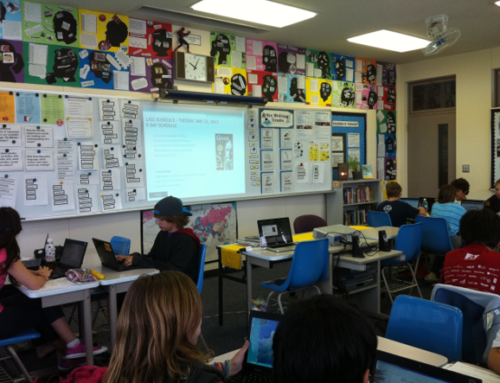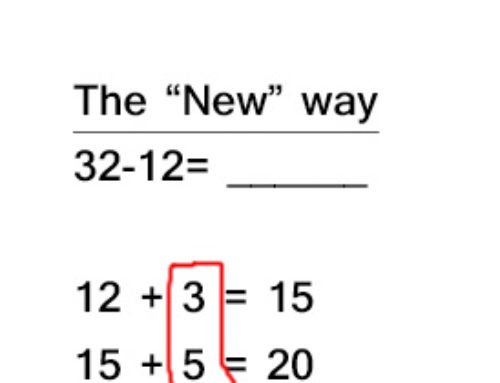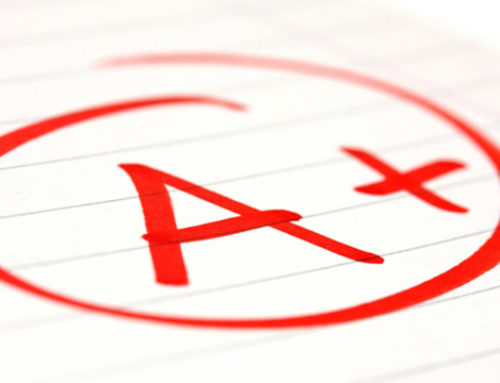Homeschooling is on the rise in America. According to the National Center for Education Statistics, from 1999 to 2012 the number of homeschooled children more than doubled, from 850,000 to 1.8 million. According to EdChoice’s 2017 Schooling in America survey, while currently around 3 percent of students are homeschooled, around 7 percent of families would homeschool if they could.
For many families, the costs and obligations related to homeschooling are simply too burdensome. Some parents don’t have the confidence in their own abilities to teach every subject to their children. Others cannot devote themselves to homeschooling full-time. Perhaps most of all, many homeschooling families want their children to socialize with other children to learn how to share, cooperate and get along with others.
Enter hybrid homeschooling, a model where children split their time between homeschool and a more traditional schooling environment. This could be three days at home and two days at school, two days at home and three days at school, part of the day at home and part of the day at schools, or a variety of other options.
Many of the organizations that provide education to children outside of the home are quick to argue that they should not be classified as “schools.” Part of this is regulatory, as they often do not sit for the state-prescribed number of days or follow the practices of full-time schools. But part of this is also to retain the primacy that parents have in shaping the education of their children. The “school” is secondary; the home comes first.
One example of this model is the Regina Caeli schools that now operate in 12 cities and 11 states, serving some 1,100 children. I spoke with the founder, Keri Beckman, on an episode of the Cool Schools podcast recently. Children in the program are homeschooled three days a week, but on the other two days, they get dressed up in school uniforms and head to class. Classes are predominately taught via Socratic seminar and focus on deep engagement with great books and classic texts. It is a Catholic model, with many of the traditional trappings of Catholic schools with which families might already be familiar.
Regina Caeli is not the only hybrid homeschool model out there. Toco Hills Home Tutoring helps families supplement what they do at home with a mix of part-day, after school and one-on-one tutoring services. The UMSI schools are another model, but one that leans a bit more on the school to provide direct instruction. Parents play a strong role, but transition from “private tutors” to “guides” to “course monitors” as children age and material gets more complex. Eric Wearne of Holy Spirit College has a great write up of several hybrid homeschooling models here.
In terms of cost, the Regina Caeli model runs $4,000 per year for high school and $3,250 for elementary school. USMI schools’ tuition varies, but at the Augustine Academy, a USMI-network school in suburban Milwaukee, tuition is $4,800 for 3 days at school and 2 days at home in a K-5 program and $5,900 for 4 days at school and 1 day at home in a 6-8 program. More and more families appear willing to pay for this hybrid model because it provides them with the flexibility to work part-time and have their kids in a setting with other students. And in states that have private school choice programs—such as an education savings account or a flexible voucher—these costs could be fully covered depending on student eligibility.
Hybrid homeschools are particularly interesting for two reasons. First, they blur the lines around what we consider a “school.” With the proliferation of new technologies and resources, it is much easier for families to get high-quality materials and instruction for their children in a wide range of subjects. It is also easier for families to network with each other and find opportunities to collaborate.
At the same time, many families still want something resembling a traditional school experience. Hybrid homeschools leverage new innovations while satisfying parents’ desires. More than anything, they cause us to ask questions about traditionally organized schools (both public and private): Why keep a tight leash around learning? Can we leverage outside resources better to improve the quality of education that children receive? What role should parents play in shaping what children learn?
Hybrid homeschools also have implications for education policy. If more and more schools look like them in the future, measuring school performance, drafting rules and regulations and supporting these innovations are all going to be flashpoints for debate and discussion. School accountability policy, even for private schools that participate in voucher or tax credit scholarship programs, generally assume one school taking “ownership” of a child for accounting purposes. What does that look like in such a decentralized system? If families are able to finance an education like this through education savings account programs or other more flexible funding mechanisms, how will states manage that?
In the state of Florida, the non-profit tasked with administering the state’s private school choice program has teamed up with SAP Ariba to create a platform to link education providers with families. Providers can be vetted on the front end to make sure that what they are providing comports with the goals of the program, and families can get user-friendly information about what is being offered. By putting this whole exchange online, the platform can dramatically decrease the work that parents have to do to find educational resources and options that meet their children’s needs.
As frictions decline and funding streams diversify, more families will be able to customize their child’s education. Rather than retreat to entirely atomized homeschooling environments, hybrid homeschools offer the potential to reap the benefits of parent-driven instruction with the benefits that traditional schooling environments supply.
Obviously, this is an evolving model that will continue to change as families expect and create different experiences. It’s clear from even a cursory look at hybrid homeschooling, though, that it is growing and likely to become a larger and larger part of the educational ecosystem in our country as time moves forward.
Mike McShane, Forbes Magazine Contributor.





